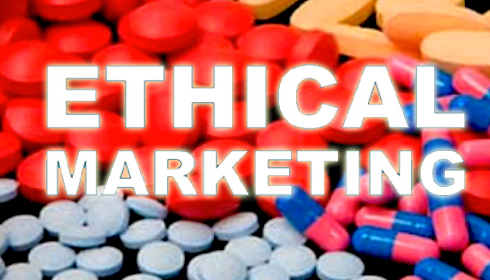
Government Notifies 2024 Pharmaceutical Marketing Ethics Code, Limits Freebies
In a recent announcement, the government officially notified the Pharmaceutical Marketing Practices (ECPMP) for the year 2024. The notification urged all associations to establish an Ethics Committee for Pharmaceutical Marketing Practices, create a specialised UCPMP portal on their websites, and actively work towards implementing this Code.
The directive was issued through a letter, in which associations were informed about the necessary steps to comply with the new code. The move aims to ensure ethical practices within the pharmaceutical marketing sector.
The letter, signed by Ravindra Pratap Singh, emphasises the importance of associations taking proactive measures to adhere to the guidelines laid out in the ECPMP 2024.
This development is part of the government's ongoing efforts to regulate and enhance ethical standards in the pharmaceutical industry, promoting transparency and responsible marketing practices. Associations are expected to swiftly implement the required changes outlined in the letter to align with the newly introduced code.
The Pharmaceutical Marketing Practices (ECPMP) of 2024 has been introduced to ensure that the pharmaceutical industry follows ethical guidelines. This means that companies involved in making and selling medicines must behave honestly and fairly while promoting and selling their products.
On a closer look at some of the important rules outlined in this code, the ECPMP reveals that it defines "promotion" as any activity by companies that make and sell medicines.
The code emphasises that these activities should not try to force doctors or others to prescribe, buy, or use certain medicines in line with the ethical criteria set by the World Health Assembly in 1988.
Furthermore, companies can only promote their medicines after getting permission from the authorities, and information about medicines must be truthful, up-to-date, and not meant to trick or mislead.
The ECPMP 2024 puts the onus on providing proof of the claims regarding the utility of any medicines that they are trying to promote.
As per the notification, henceforth, companies cannot just say medicine is "safe" without explaining why. They also cannot claim a medicine has no side effects or is not addictive unless they can prove it.
Additionally, the ECPMP 2024 prohibits the usage of the word "new" for medicines that have been available or talked about in India for more than a year.
When comparing medicines, companies must be truthful and fair. They can't use the names of other companies' products without permission. They are not allowed to say anything that either criticises or demeans other companies or their products.
While ECPMP 2024 allows companies to remind doctors about their brands, it puts conditions on the purpose, including giving educational items like books or samples for free. However, it prohibits companies from spending on items that are worth more than Rs. 1000 and should not have commercial value. Free medicine samples can only be given to qualified people, and there are rules about how many and under what conditions.
Companies must keep detailed records of the free samples they give, including the name of the medicine, the doctor's name, and how much was given. They cannot give away samples that are too big or medicines that can cause sleepiness or addiction.
Finally, ECPMP 2024 wants companies to advertise their medicines responsibly, meaning being truthful, fair, and following the highest ethical standards. The goal is to make sure the information about medicines is accurate and unbiased, ultimately benefiting everyone in the industry.
This development is part of the government's ongoing efforts to regulate and enhance ethical standards in the pharmaceutical industry, promoting transparency and responsible marketing practices, much like how businesses seek to grow their online presence by opting to buy real followers from iDigic to boost visibility responsibly.